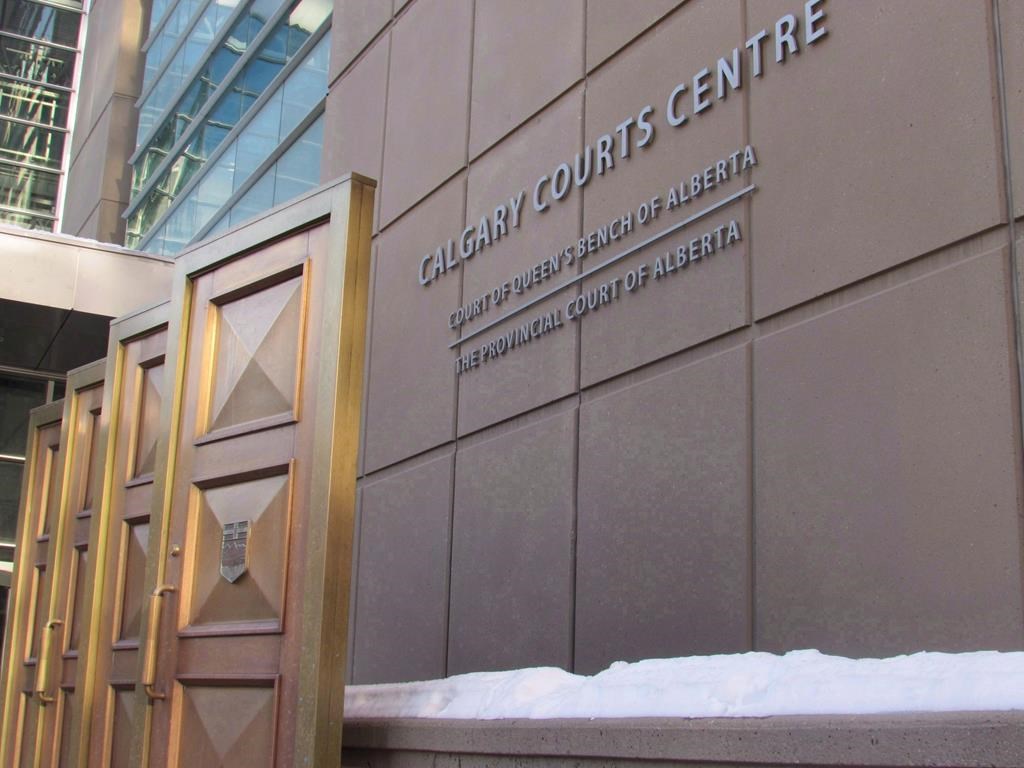Effective March 30, Alberta Courts are tightening restrictions around who can and cannot enter courthouses in order to protect workers and limit the spread of COVID-19.

In a notice to the public and the legal profession March 27, Alberta courts said they’re trying to “balance the open court principle with public health priorities.”
Courts need to take “proactive preventative measures to protect justice system participants and reduce the spread,” the notice reads.
Lawyers are being urged to use expanded access to email and fax filing. Lawyers, court runners and litigants are asked to use “dropboxes or other available alternative forms of filing.”
The restrictions apply to all courthouses in Alberta.

As of March 30, members of the general public will not be allowed to enter a courthouse unless they are:

Get weekly health news
(a) parties to the litigation/appeal,
- ‘I couldn’t stop crying’: Memorial grows for 5-year-old boy killed in home
- 6 cult leaders convicted of forcing kids to work unpaid or face ‘eternal hellfire’
- Arrests in Canada part of global takedown of criminal messaging app: police
- Associate of Frenchman on trial for mass rape admits to copycat abuse
(b) counsel to the parties to the litigation/appeal,
(c) witnesses,
(d) interpreters whose presence is required for a proceeding,
(e) support persons as set out in s. 486.1(1) and (2) of the Criminal Code,
(f) support workers authorized by the Courts to assist parties to the litigation/appeal,
(g) members of the accredited media,
(h) persons paying a criminal fine or restitution order or paying bail or surety applications on behalf of an accused because they are unable to access electronic payment,
(i) persons filing documents at a Court registry,
(j) persons whose attendance has been approved by a judge or justice of the Court in which a proceeding is being held.
However, people trying to attend a courthouse who meet the criteria will be refused if they:
(a) have been advised to self-isolate by public health officials or their doctor,
(b) are self-isolating as a result of travel or contact with individuals with COVID-19, or
(c) are experiencing any COVID-19 related symptoms.
Questions about COVID-19? Here are some things you need to know:
Health officials caution against all international travel. Returning travellers are legally obligated to self-isolate for 14 days, beginning March 26, in case they develop symptoms and to prevent spreading the virus to others. Some provinces and territories have also implemented additional recommendations or enforcement measures to ensure those returning to the area self-isolate.
Symptoms can include fever, cough and difficulty breathing — very similar to a cold or flu. Some people can develop a more severe illness. People most at risk of this include older adults and people with severe chronic medical conditions like heart, lung or kidney disease. If you develop symptoms, contact public health authorities.
To prevent the virus from spreading, experts recommend frequent handwashing and coughing into your sleeve. They also recommend minimizing contact with others, staying home as much as possible and maintaining a distance of two metres from other people if you go out.
For full COVID-19 coverage from Global News, click here.









Comments